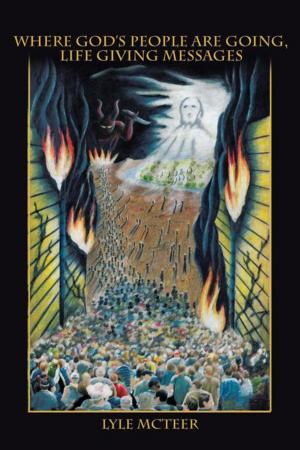| Author: | T. Joyner Drolsum | ISBN: | 9781456795719 |
| Publisher: | AuthorHouse | Publication: | November 7, 2011 |
| Imprint: | AuthorHouse | Language: | English |
| Author: | T. Joyner Drolsum |
| ISBN: | 9781456795719 |
| Publisher: | AuthorHouse |
| Publication: | November 7, 2011 |
| Imprint: | AuthorHouse |
| Language: | English |
During our brief and perilous journey ex irritum ad irritum, how are we to find, what the German philosopher Martin Heidegger (Sein und Zeit) would call, the true approach to being? How do we answer the question posed by the Apostle Thomas when he asked how can we know the way (Jn. 14:5)? In other words, how should we fill that parenthesis of infinitesimal brevity, which James Joyce (Ulysses) maintained, demarcates each of our lives? The Bible has often been put forth as a supposedly infallible guidebook charting the correct path to an authentic existence (e.g. 2 Tim. 3:16-17). According to its proponents, Scripture is an absolutely dependable life-manual because it is the word of God (Summa Theologica, First Part, Q. 1, Art. 10). However, close inspection of the Bible calls into question its divine authorship; and, thus, its reliability as an accurate roadmap for the soul. In fact, under close examination it proves to be nothing more than a mundane and cobbled together collection of archaic superstitions beginning with the outlandish speculations of Moses concerning the creation of the world and ending with the maniacal ravings of John regarding its destruction. Exposing the true nature of Holy Writ was the main purpose for writing Unholy Writ. The modus operandi for this expos involved a thoroughgoing critical analysis of Scripture. The results from such a careful consideration of its contents clearly demonstrated that any claim that the Bible is some sort of sacrosanct ethical vade mecum is completely invalid. Specifically, the multiple contradictions and absurdities contained in the Bible confer an unreliability upon it that undermines its function as a guide for anything, let alone as some sort of moral map for the journey through life. Furthermore, many of the ideas that are promoted in Holy Writ are actually spiritually harmful. In addition, unless the condoned misogyny, violence, intolerance, injustice, and cruelty can be removed, then it is difficult to view the Scriptures as anything like an unwavering celestial beacon that clearly lights the way through the moral fog that at times engulfs our lives. Moreover, the many errors that it contains, including those about the natural world, undermine the pivotal claim that the Bible is divinely inspired.
During our brief and perilous journey ex irritum ad irritum, how are we to find, what the German philosopher Martin Heidegger (Sein und Zeit) would call, the true approach to being? How do we answer the question posed by the Apostle Thomas when he asked how can we know the way (Jn. 14:5)? In other words, how should we fill that parenthesis of infinitesimal brevity, which James Joyce (Ulysses) maintained, demarcates each of our lives? The Bible has often been put forth as a supposedly infallible guidebook charting the correct path to an authentic existence (e.g. 2 Tim. 3:16-17). According to its proponents, Scripture is an absolutely dependable life-manual because it is the word of God (Summa Theologica, First Part, Q. 1, Art. 10). However, close inspection of the Bible calls into question its divine authorship; and, thus, its reliability as an accurate roadmap for the soul. In fact, under close examination it proves to be nothing more than a mundane and cobbled together collection of archaic superstitions beginning with the outlandish speculations of Moses concerning the creation of the world and ending with the maniacal ravings of John regarding its destruction. Exposing the true nature of Holy Writ was the main purpose for writing Unholy Writ. The modus operandi for this expos involved a thoroughgoing critical analysis of Scripture. The results from such a careful consideration of its contents clearly demonstrated that any claim that the Bible is some sort of sacrosanct ethical vade mecum is completely invalid. Specifically, the multiple contradictions and absurdities contained in the Bible confer an unreliability upon it that undermines its function as a guide for anything, let alone as some sort of moral map for the journey through life. Furthermore, many of the ideas that are promoted in Holy Writ are actually spiritually harmful. In addition, unless the condoned misogyny, violence, intolerance, injustice, and cruelty can be removed, then it is difficult to view the Scriptures as anything like an unwavering celestial beacon that clearly lights the way through the moral fog that at times engulfs our lives. Moreover, the many errors that it contains, including those about the natural world, undermine the pivotal claim that the Bible is divinely inspired.















